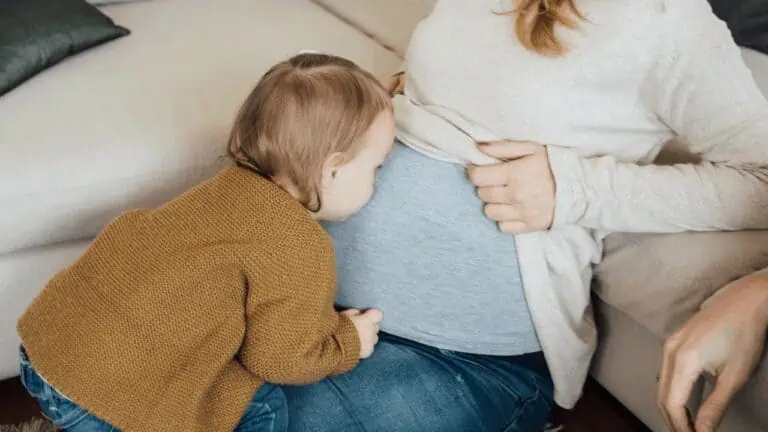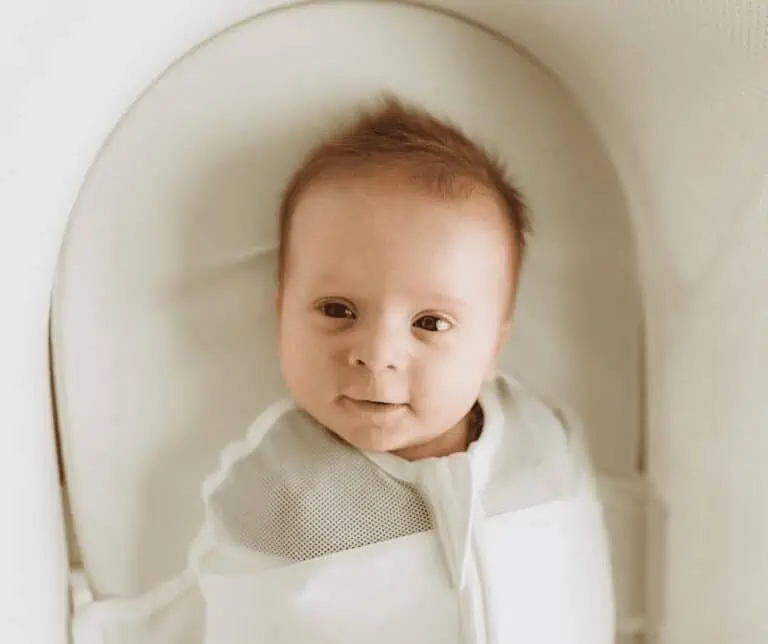14 Signs a Grandparent Isn’t a Good Influence
This post may contain affiliate links. As an Amazon Associate, I earn from qualifying purchases.
Grandparents can be awesome, but sometimes, they aren’t so grand. Grandparent-grandkid relationships can be some of the most enriching and fulfilling family connections. While they often play the role of wise elders and fun companions, not all grandparent-grandchild relationships are positive.
How does your interaction with the grandparent in your life leave you feeling? Recognizing the warning signs of a toxic grandparent is crucial for maintaining a healthy family environment. Parents and grandparents should recognize these signs to ensure children grow up in a supportive and nurturing environment.
If you suspect that a grandparent’s behavior is narcissistic or negatively impacting your family, it’s important to address the issue sooner rather than later. Here are the warning signs to watch out for:
1. They’re Verbally or Emotionally Abusive

Grandparents should be sources of love and encouragement. If a grandparent frequently uses harsh words, belittles their grandchildren, or makes them feel unworthy, it can cause severe emotional damage. Verbal abuse can manifest as constant criticism, name-calling, or making demeaning comments.
Emotionally abusive grandparents might also use fear or shame to control their family members. Experts say that this behavior can erode a child’s self-esteem and create an unhealthy family atmosphere, leading to long-term psychological issues.
2. They Don’t Respect Boundaries
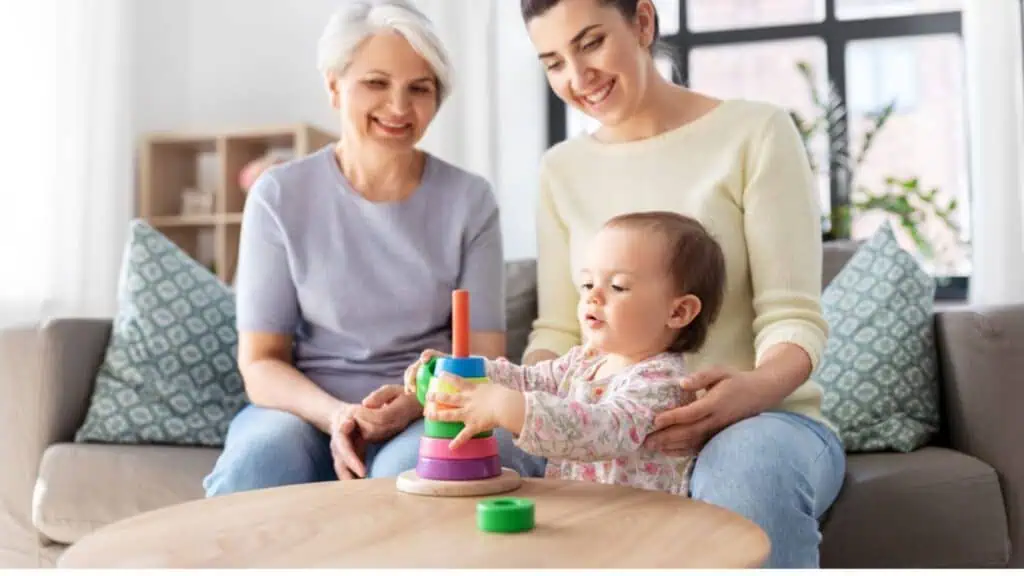
Healthy relationships are built on mutual respect and understanding. When a grandparent repeatedly oversteps boundaries set by the parents, it can create tension and conflict. This could involve making decisions about the child’s upbringing without consulting the parents or disregarding parental rules and guidelines.
Boundary issues can also arise if a grandparent insists on spending time with the grandchildren despite the parent’s wishes. Disrespecting boundaries undermines parental authority and can confuse the child about who is in charge.
3. They Try to Divide the Family

A grandparent who tries to pit family members against each other can cause significant harm to family unity. This behavior may include spreading rumors, instigating conflicts, or favoring one grandchild over another to create jealousy and discord.
When a grandparent acts as a divisive force, it can lead to fractured relationships and long-lasting resentment among family members. Unity and harmony within the family are essential for a supportive environment, and any attempts to disrupt that should be addressed.
4. They’re Morally Inappropriate

Grandparents are often seen as role models, so their behavior can significantly influence their grandchildren’s moral development. Engaging in morally questionable activities, such as lying, cheating, or substance abuse, sets a poor example for the grandchildren.
Exposure to inappropriate behavior can confuse children about right and wrong, potentially leading them to mimic these behaviors in their own lives. It’s essential to shield children from such negative influences to ensure they develop a strong moral compass.
5. They’re Manipulative
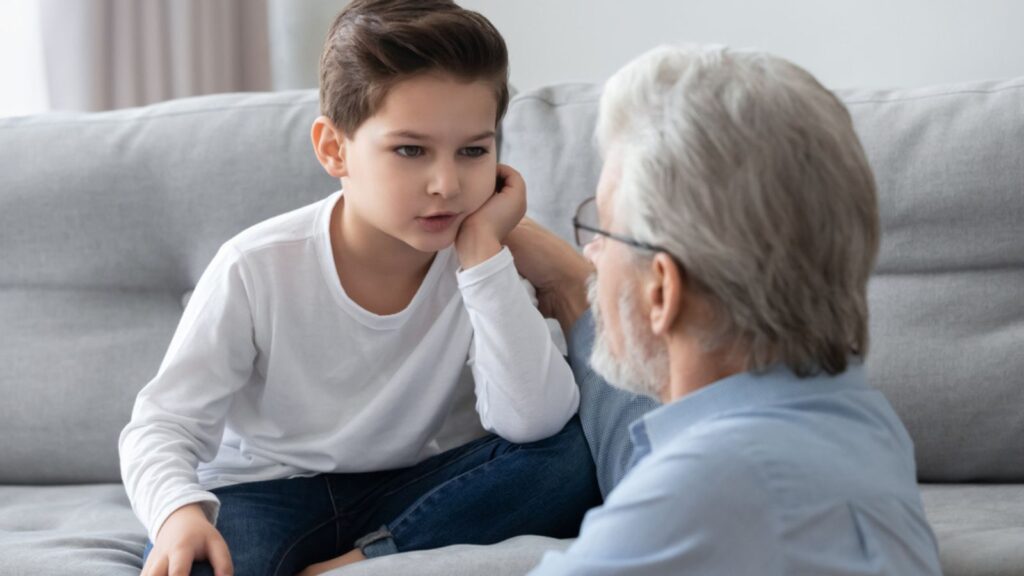
Manipulative grandparents use deceptive tactics to control or influence family members. This could involve guilt-tripping, playing the victim, or using emotional blackmail to get their way. Such behavior creates a toxic environment where family members feel powerless and coerced.
Children, in particular, may feel trapped and confused by a manipulative grandparent’s actions. It’s crucial to recognize and address manipulation to protect the emotional well-being of everyone involved.
6. They Love to Bully You or the Grandkids
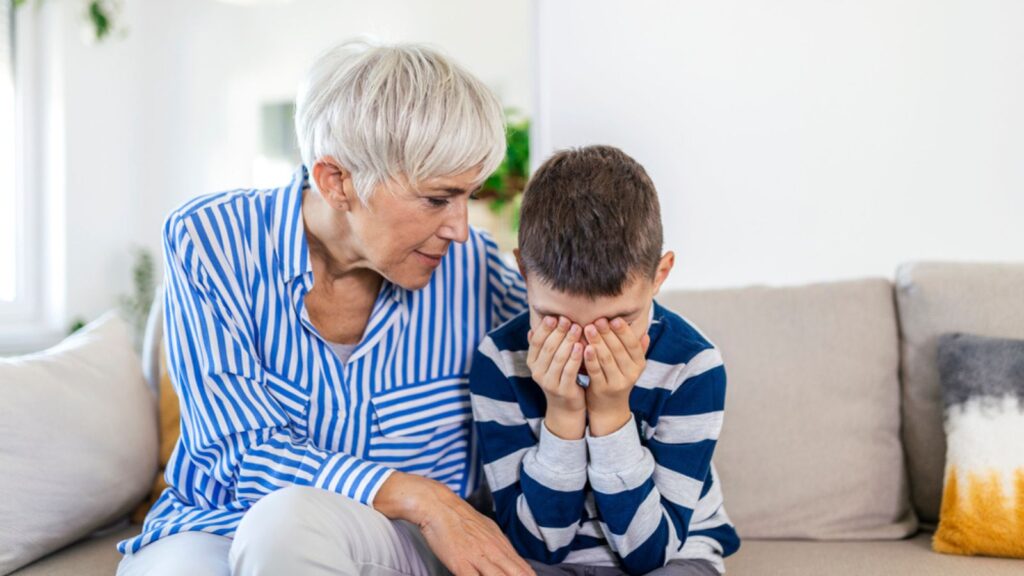
Bullying behavior, whether directed at the parents or grandchildren, is unacceptable in any family dynamic. Grandparents who bully use aggressive actions to assert control and dominance. This can make the home environment hostile and unsafe.
Bullying can have severe psychological effects on children, leading to anxiety, depression, and low self-esteem. It’s vital to address bullying immediately to maintain a safe and supportive family atmosphere.
7. They Are Reactive to Confrontation

Can you have a sober conversation with your child’s grandparents, or are they a walking landmine? Grandparents who become defensive or hostile when confronted about their behavior can be challenging to deal with. Reactivity to confrontation often indicates an unwillingness to acknowledge faults, which can make resolving conflicts and improving relationships difficult.
When a grandparent doesn’t talk constructively, the family cannot resolve issues and move forward. Open communication is essential for a healthy family dynamic; reactivity to confrontation can be a significant barrier.
8. They’re Resistant to Change

Change is a natural part of life, and adapting to new circumstances is crucial for maintaining healthy relationships. Grandparents who resist change may cling to outdated beliefs or practices, refusing to accept new parenting styles or family dynamics. This resistance can create a rift between generations and hinder the family’s growth.
Embracing acceptance and flexibility is crucial for nurturing a harmonious family environment. Grandparents who struggle with change may benefit from guidance and support in adapting to the family’s evolving needs.
9. They Love to Intimidate Others
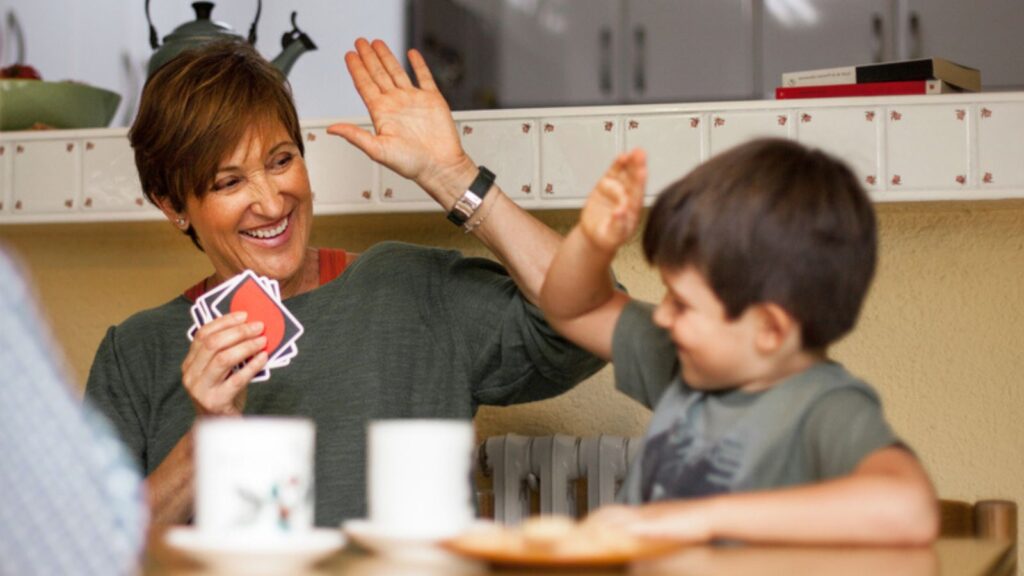
Intimidation is a form of control that can create a fearful and oppressive atmosphere within the family. Grandparents who use intimidation might employ loud outbursts to dominate others. This behavior can make family members, especially children, feel unsafe and anxious.
It’s essential to address intimidation promptly to ensure the family environment remains a place of love, respect, and support. No one should feel afraid within their own home.
10. They Refuse to Respect Parental Decisions
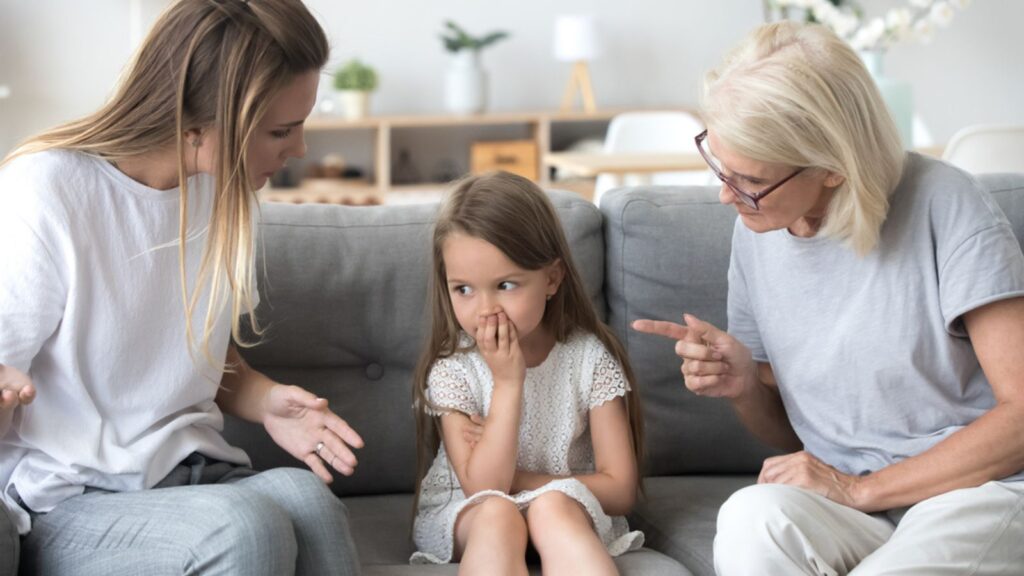
Grandparents who refuse to respect parents’ decisions can cause significant disruptions in the family. This might manifest as contradicting parental rules, decisions about discipline, or choices regarding the child’s diet or education.
Such behavior can lead to confusion and resentment among the children. It’s crucial for grandparents to understand that respecting parental decisions is fundamental to maintaining harmony within the family.
11. They Use Gifts as a Form of Control
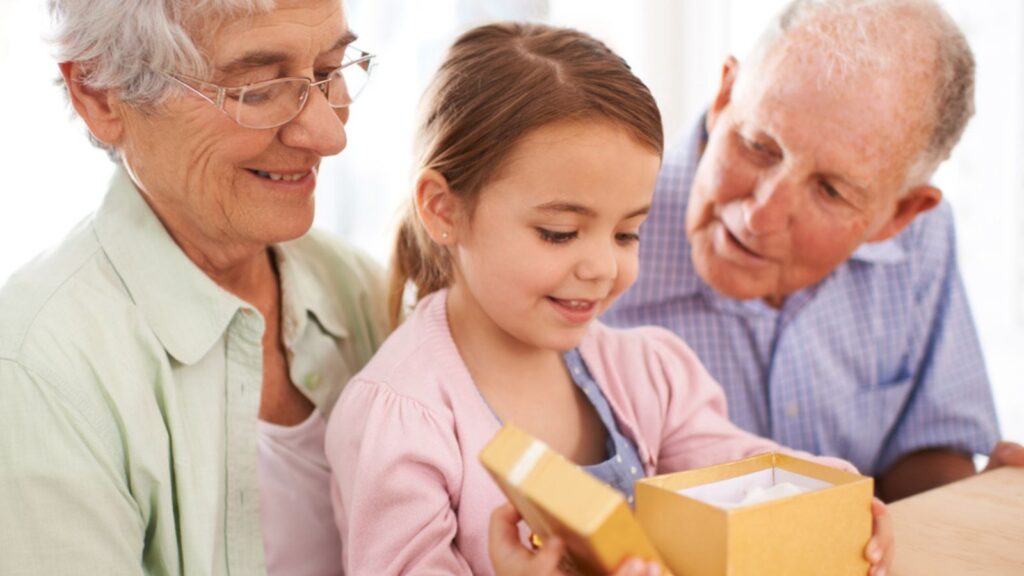
Have you seen a grandma buy a diamond necklace for a four-year-old grandchild to spite the parents? While gift-giving is a common and often appreciated gesture, some grandparents use gifts as a means of control. They might lavish grandchildren with expensive presents to win favor or make up for their behavior, creating an unhealthy dynamic.
This approach can spoil children and create unrealistic expectations while fostering dependency and competition. Grandparents need to ensure their generosity does not come with strings attached or ulterior motives.
12. They Display Overprotectiveness
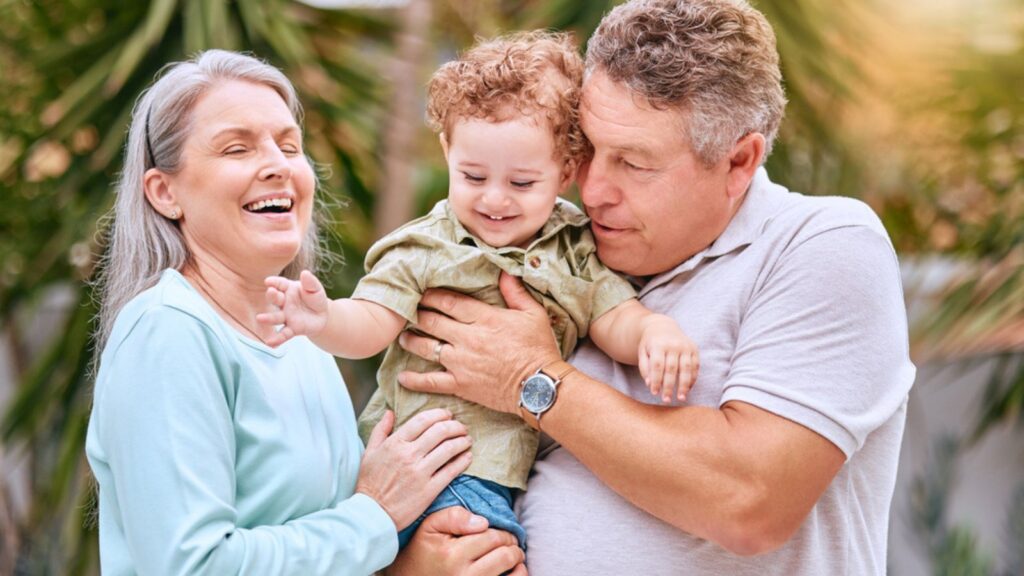
Children need to be protected. However, overprotective grandparents can inadvertently stifle their grandchildren’s growth and independence by being excessively cautious or controlling. This overprotectiveness can prevent children from taking risks, learning from their mistakes, and developing confidence.
While the intent is often to keep the child safe, grandparents must strike a balance and allow the parents to guide the child’s development.
13. They Gossip About Family Matters

Grandparents who gossip or share sensitive information about family members can create trust issues and conflicts within the family. This behavior can instigate misunderstandings and hurt feelings, damaging relationships and trust.
Grandparents need to respect the privacy of their family members and refrain from spreading rumors or confidential information.
14. They Are Neglectful

Grandparents are some of the best babysitters. In some cases, grandparents might exhibit neglectful behavior, failing to provide appropriate care or attention to their grandchildren.
This could involve ignoring the child’s needs, being uninvolved in their lives, or not offering support when needed. Neglect can have serious emotional and developmental consequences for children, and it is important for grandparents to be present and attentive in their roles.
20 Strong Words Parents Should Never Say to Their Kids
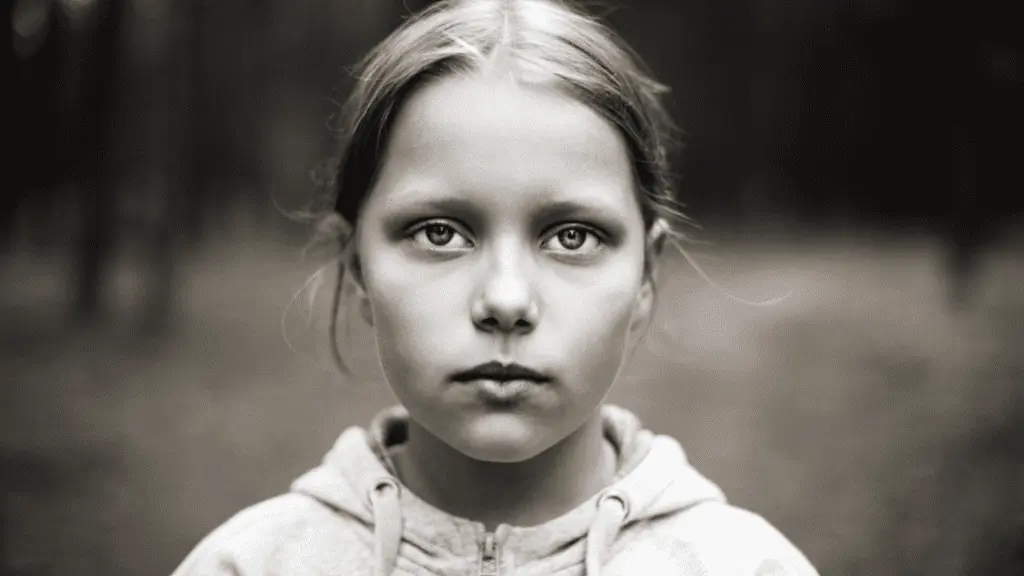
Countless adults sitting in a therapist’s office today are grappling with the lasting impact of words spoken by their parents during childhood. Regardless of how you perceive yourself, in your child’s eyes, you are nothing short of the most remarkable thing to happen to them since “skip intro.” This underscores the critical importance of being mindful of what you say to your children, as your words become the small but influential voice in their developing minds.
20 Strong Words Parents Should Never Say to Their Kids
16 Common Phrases Grandparents Should Stop Saying to Their Grandkids
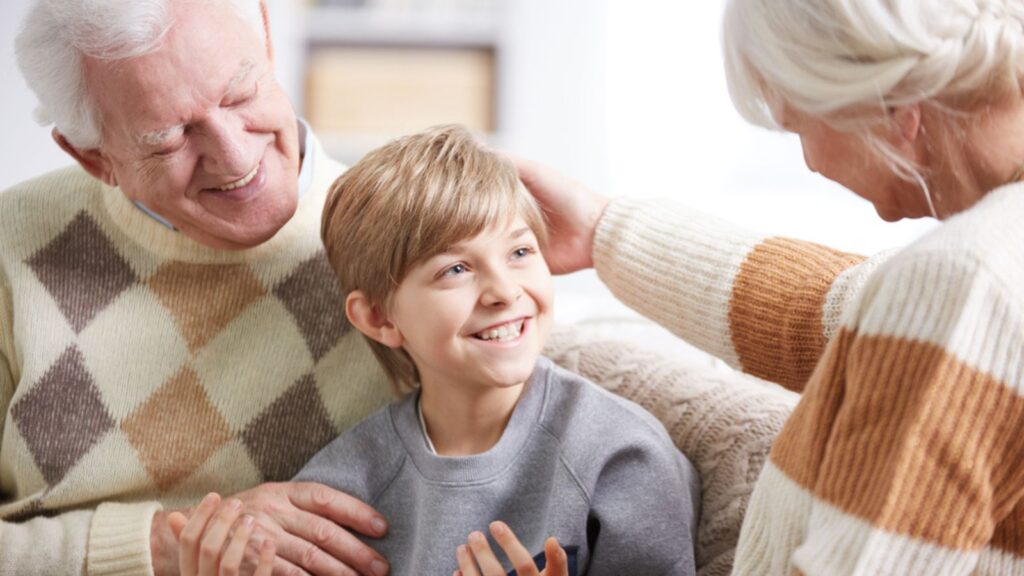
Do you still remember something your grandparents said that made you uncomfortable? As much as we adore our grandparents, their words (even with good intentions) can sometimes hurt our feelings or are plain embarrassing.
If you are a grandparent, using your words mindfully around your grandkids is as crucial as any other relationship. Words hold immense power and shape our kids’ behaviors and perceptions.
16 Common Phrases Grandparents Should Stop Saying to Their Grandkids




